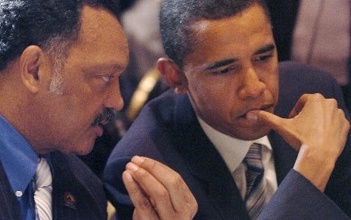Dr. Boyce Watkins
www.BoyceWatkins.net
When I received the email about CNN’s recent series “Black in America”, I wasn’t happy, I wasn’t sad: I was indifferent. I saw it for what it was: an attempt to use viral marketing to achieve a ratings hit against Fox News. But after seeing the same damn email forwarded to me over and over and over again, I knew one thing: many black people were excited….really excited, as if CNN were the Union Army and this were a modern-day Juneteenth. The email was forwarded as a “must see”, save-the-date, tell ya mama, grandmamma, baby’s mama event that was going to change the world. Finally, the predominantly white media was going to give us a fair shake and truly tell our story. They were going to help White America understand what we go through and why we are not the animals some think we are. They were going to present hurdles and solutions that will help us come together as a nation. Call me a skeptic, but if the media has never told our story accurately in the past, what in the hell made us think they were going to do it right this time?
Given that some label me a “haterologist” for daring to question the religious figure known as Barack Obama (I am cautiously, yet strongly supportive and protective of Barack, but I insist that anyone who gets my vote communicates an effective urban agenda) I chose to let the liquor keep flowing at the “We Shall Overcome via CNN” Happy Hour in Black America. In other words, I remained silent, since it’s not fun to bring bad news (academics are trained to be skeptical, even if we think something is good). All of us were ready to pull out the popcorn and kool-aid, to stare down the TV set like we were watching Beyonce give birth in outer space. The CNN event was truly the Black middle class version of the BET Video Music Awards, without all the gold teeth and stuff.
I watched the show the same way I normally watch CNN: between flights in random airports. I don’t even watch CNN when I appear on the network, since I stay pretty busy. I won’t say how I felt after the special; I’ll just let you read my facial expression through these words. Imagine a modest-looking, youngish-oldish, blackish/brownish bald man with a twisted frown-like scowl, a twitching, squinted left eye, a curled up bottom lip and gritted teeth, viewing a TV screen between his two middle fingers. Sort of like the face you make when watching an Olympic gymnast fall crotch-first onto the balance beam right before breaking his leg.
“Black in America” was the socio-political lovefest between CNN and Black people that just wasn’t going to materialize. It was the day when we in middle class Black America truly thought we were going to be vindicated, and the world would finally learn to love us. Black America became Jeremiah Wright at The National Press Club, thinking that the same media that destroyed his image was going to be the source of image repair. But like Jeremiah Wright (whom I respect tremendously), we marched away angrily, kicking the cracks in the sidewalk, shocked that we’d all been bamboozled. We were finally invited into the game, but only so they could use our ball and make us the mascot.
I don’t hate CNN, I’ve done a lot of work with them. I do, however, hate Fox News….well, just Bill O’Reilly and Sean Hannity (great job this week Nas – even though you should stop marketing yourself as a replacement for Jesse Jackson). I don’t question the motives of the producers, including Soledad O’Brien, a woman I truly believe to care about black people. I also felt that Paula Zahn (a former host) really wanted to dig to the root of racial inequality in an honest way. I did not, however, feel that CNN could pull off an honest conversation on race, and I don’t believe they wanted to. They were, to me, like American Generals thinking they could muscle their way to peace in Iraq. They felt that if they spent enough money, engaged in enough viral marketing and got enough black people excited, they could create a ratings monster.
CNN achieved its goal. What made me feel bad for black people is that many of us actually thought that their goals were the same as our own. Here are more quick thoughts:
1) Black people were not the target audience of this series. CNN was not talking TO black people, they were talking ABOUT black people. Understand, there is a difference between telling white America how horrible black people can be vs. telling White people things they may not want to hear. Sure, CNN was glad to have Black viewers, but they are designed to cater to the other 87% of the population, not the 13% who serve as stars of the show. Black people have always made good entertainment for the corporate news monster, which feeds itself from the number of eyeballs it gets on the screen.
2) Most of the content for a TV news show, guest selection, and everything else, comes from the mind of the producer(s). Most producers of cable news shows, and all of the hosts, are non-black. Their viewpoints, structured in a racist society, are going to manifest themselves in the content of the show. Our media school here at Syracuse is one of the top 3 in the world and we have a lot of students who go on to become producers at CNN, FOX, NBC, etc. During a highly racist show created on our campus news network a couple of years ago (it led to the studio being shut down and students being harshly and unfairly disciplined), I noted that it was not the fault of the students that they see the world the way they do. It’s the fault of their parents and educators who refuse to teach them what they need to understand about race. America must face the truth about racism in order to properly educate news producers to provide a more enlightened perspective. As I began working with international news organizations this year, the contrast became quite clear: I enjoy appearing on international networks like Al Jazeera much more than CNN, Fox and MSNBC. The difference is like comparing a gourmet meal of knowledge to crackers from a sound bite vending machine. That’s why I only watch cable news in airports.
3) The Black in America series was done for one reason: to take away Fox News’ Black viewers (Black people hate Fox, and I am glad they do) and to defeat O’Reilly at the ratings game. While Black in America did very well in the ratings, it was still second to The O’Reilly Factor. The idea that there are 2.5 million people in America who watch O’Reilly every night says something about where we stand in America as it pertains to race. If CNN is trying to steal these viewers, then an honest reflection on racism is not going to achieve that goal.
4) The way this show was done underscores the need to finance and secure more black-owned media (I shared this with Rev. Jackson this week, since I was disappointed that his mishap with the microphone occurred on Fox – whether you like Jesse or not, our most respected and cherished leaders should not have to lean toward racist venues like Fox News to get a message to their people). No one else will ever tell our story the way we would tell it. This underscores the importance of supporting black media outlets and even going to the Internet to get your news if necessary. This does not imply that CNN can’t be a valid source of news, but I encourage their network to get more black hosts and producers so they can tell the story right next time.
5) Personally, I was a bit offended by the “Black in America” series, primarily because it gave me exactly what I expected: a series of shallow statistics and vignettes, featuring the most dramatically negative aspects of our existence, all provided without context to an audience that sits back and says “What’s wrong with those people?” I can’t help but wonder if a show called “White in America” would be produced, showing many negative realities of the White community. What is most ironic is that such a series would never be acceptable.
Only Black people feel the pressure to answer for every little thing that happens in all corners of our community. We will even say that we are “embarrassed” by something we saw on TV. I’ve never seen a White man get embarrassed by the behavior of someone in a trailer park, so I don’t get embarrassed by Flavor Flav. It is the lack of image diversity in mainstream media that makes us angry at Flavor Flav for simply being who he is. The truth is that we should wonder why it is ONLY Flavor Flav on the network, and not another Black image to balance him out.
Self-reflection is necessary. But I don’t believe in self-hatred. To LIFT yourself, you must learn to LOVE yourself. CNN’s “Black in America” didn’t give us much to love. But looking for love externally doesn’t usually work anyway, so why were we trying so hard? The next time CNN offers us a media Juneteenth, this slave will already have left the plantation, I’ll be educating my God kids instead.
Dr. Boyce Watkins is a Finance Professor at Syracuse University and author of “What if George Bush were a Black Man?” For more information, please visit www.BoyceWatkins.net.











